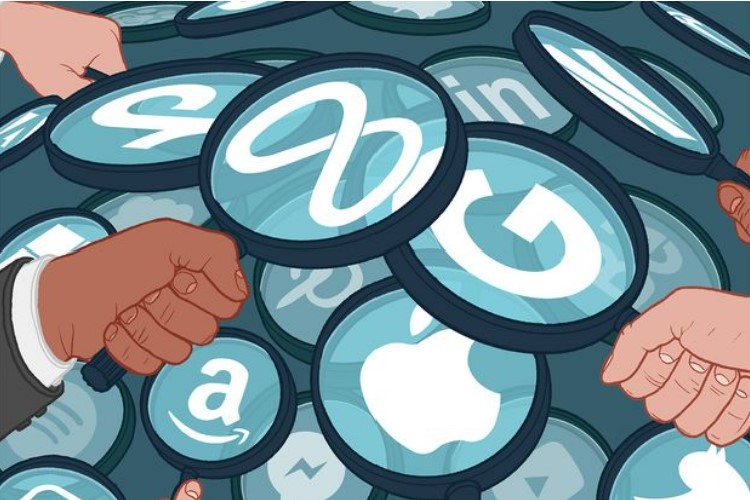Data
Big Tech’s Free Ride Is Coming to an End
By: Mark Penn
Originally Published on: Barron’s
About the author: Mark Penn is chairman and CEO of Stagwell, a technology-based global marketing services firm.
Technology’s Wild West era is coming to an end. For decades, American policy has been hands-off technology to let it grow and innovate. On the eve of the dawn of artificial intelligence and the metaverse, the bad taste consumers have of social media and its divisiveness suggests that more aggressive regulation is just around the corner.
The recent round of layoffs won’t do much to staunch consumers’ fears that technology is enabling the possibility of a surveillance state. Their concerns will accelerate movement on tech privacy, censorship, anticompetitiveness, and national security legislation in the U.S. and abroad in 2023.
Half of consumers in America fear that technology will undermine their personal freedoms over the next decade, and 70% worry that tech will give more power to big corporations. The younger generations are particularly suspicious of Big Tech. Elon Musk gave some journalists access to Twitter’s records after he bought the social company. The reports they produced, known as the Twitter Files, were a damning revelation that government officials were pulling the strings behind the curtain and that the tech companies were willingly obedient much of the time.
In a recent Harvard-Harris Poll, 70% of voters now support a national law to prevent corporate censorship. The saving grace for the tech industry may be that many Democrats believe that they have been benefiting from the censorship and will oppose such a law, not understanding that what goes around comes around. They will regret blocking this legislation when they believe that they are the ones being censored. I expect this to be a significant issue in the 2024 campaign.
If Big Brother colluding with Big Tech keeps consumers up at night, the thought of TikTok being a Trojan horse for Chinese influence and spying is catnip for Congress seeking to look tough on China. Before the close of the year, leaders let loose a rash of state-based restrictions on the use of the platform by government officials. The House banned its members and staff from downloading the app. TikTok has dozens of trends working against it: Democrats and Republicans are largely aligned on the need to curb China’s influence, the Biden administration’s negotiations with TikTok have stalled, and difficult news continues to leak that employees at TikTok have misused the app, most recently to spy on journalists. The company has said it doesn’t share data with Beijing, and it fired staff members that it said were involved in the spying incident.
Voters might be less invested in the diplomatic implications of a TikTok ban than your senator, but rest assured that if the government enacts an outright ban, consumers will be up in arms. TikTok is the fastest-growing social-media platform in the U.S. and has been taking ad-market share from its legacy competitors. Expect a compromise that allows TikTok to operate but puts restrictions on how it can use and distribute information.
Beyond the U.S., data-privacy regulations will mature in 2023, meaning that global businesses will face more severe restrictions as they do business across borders. Countries have moved to enact data-privacy regulations since the implementation of the European Union’s General Data Protection Regulation in 2018, and now more than 100 have rules in place, according to Forrester. By 2024, an estimated 75% of the world’s population will be covered under modern privacy regulations.
The good news is that businesses have tracked the “will they, won’t they” drama around Google’s plan to phase out user-tracking “cookies” long enough that they’ve found solutions to replace the tool—and have adjusted data-privacy standards. But a more bullish Federal Trade Commission, with a renewed focus on “harmful commercial surveillance and lax data security,” will mean that it isn’t time to rest on laurels. It’s unlikely that the U.S. will get a national standard like the proposed American Data Privacy Protection Act. But expect the FTC to oppose virtually any merger-and-acquisition activities in tech, even if the government loses its cases.
The impulse isn’t uniquely American. The EU is also taking anticompetitive action against tech giants with the adoption of the Digital Markets Act, which aims to curb the market power of dominant digital companies. We have yet to see alignment on comparable federal efforts in the U.S. but the FTC’s recent intervention into Microsoft’s Activision deal hints at more to come. The FTC will take on Google, too, for alleged anticompetitive practices, in September.
Big Tech remains a critical engine of economic opportunity and innovation. But once it began carrying news and political speech, the industry crossed a line that put it in politicians’ crosshairs. This eroded their traditionally loyal Republican free-market supporters as the Democrats were moving further to the left, taking on a more anti–big business flavor. The combination of these trends just may result in the first major year of regulation of the industry.
Related
Articles
In the News, Press Releases, Thought Leadership
Jun 10, 2025
Stagwell (STGW) Chairman and CEO Mark Penn to Discuss the Irreplaceable Power of Human Creativity on the Main Stage of Cannes Lions

Events, In the News, Press Releases, Talent & Awards
Jun 05, 2025
Code and Theory Named ANA B2B Agency of the Year After Transforming the World’s Leading Brands

In the News, Press Releases, Talent & Awards
May 19, 2025
Stagwell (STGW) Appoints Connie Chan as Chief Growth Officer for Asia Pacific






